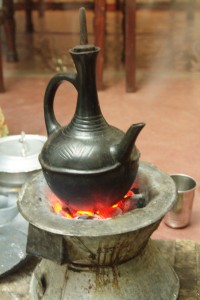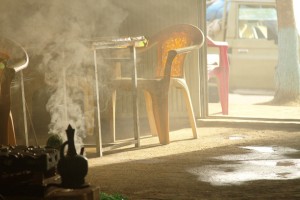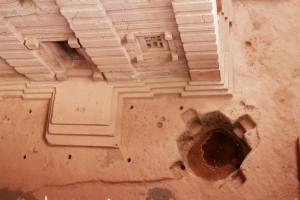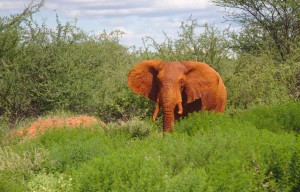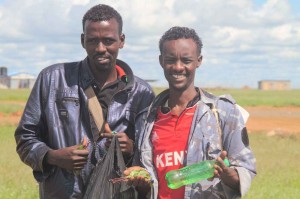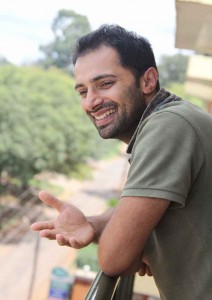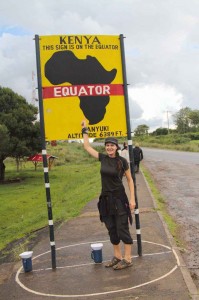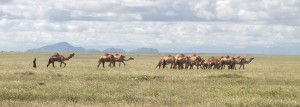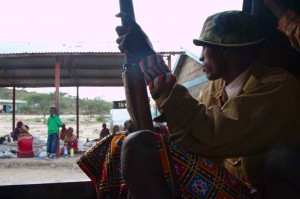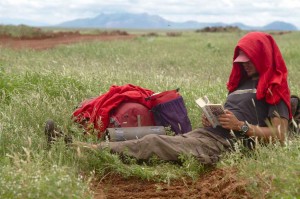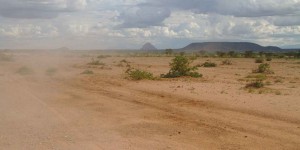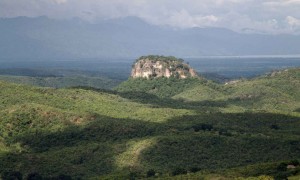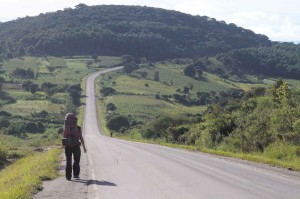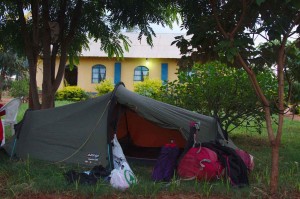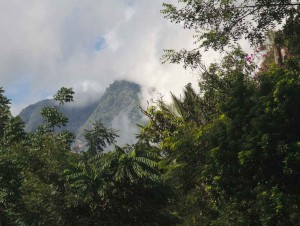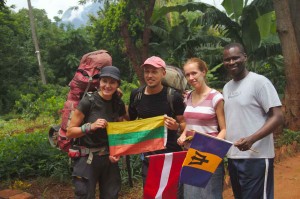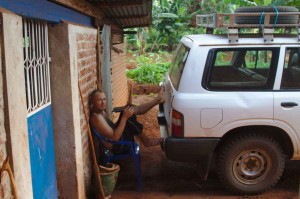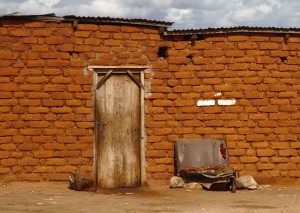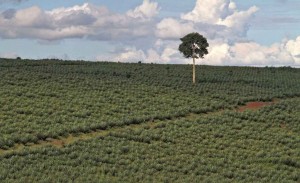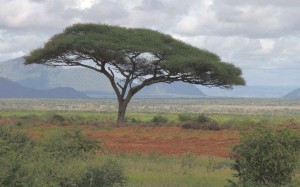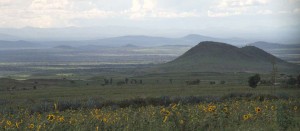So we are successfully in Ethiopia, after having made northern part of Kenya. If Zambia and Malawi, Kenya and Tanzania share some sort of borther-like features, Ethiopia stands out alone and say ‘folks, I’m seriously different’. The country lives according to the calendar of Julius, meaning seven years and three months behind. The sun rises at six, so that’s when the day commences, hence one o’clock when is our seven, but that’s actually in several more East African countries around Equator. However, their facial features are more Caucasian (narrow longer nose) and the skin colour slighly lighter too. They proudly say – Ethiopia is a homeland of Africa. And they might be right, the human journey might have just begun here and spreading across Yemen up north to Europe and the other wave to Asia tens of thousands years ago. Despite having 81 languages in their melting pot, the main one is Amharic, having artisticly looking script too. It sounds mild and soft with some tzak tzak along the lines. If the radio is on, nevermind you don’t understand a thing, but the melody lures you into song mood. Men use lots of body language, particularly eyes and forehead, and we didn’t notice how we ourselves began using it as well.
Ethiopia is the country in Africa which avoided any colonization apart from suffering a huge deal from Italians and having some sort of socialistic impact from USSR, so no wonder why Ladas are still there serving as taxis in Adis Ababa. Well, at least Italians repaying there forefathers mistakes and have built a good quality road in some parts and doing a dam too in the Nile part (that’s where in fact the Nile begins).
Ethiopian people, particularly women are beautiful and gracious, walking lean and dressed in their colourful scarfs. In the capital young ladies braid their hair in such fancy way so you think their going to the ball right from the early morning. Some women used to (like twenty years ago) tattoo their forehead with a cross and a chin with a some lines. The drivers told us it is not fashionable anymore, so they stopped doing it. You often see the the priests dressed in colourful bliss clothes and shiny umbrellas collecting the alms for their survival. Ethiopia is numerous, and there is a huge variety of people but the numbers are not scary. In fact, we felt pretty safe here.
Agression vs. friendliness
The border. We are calm to have received visa in Nairobi, so very quickly we are stamped – done and dusted, and ready to pack up and go. The officer who served us all of sudden comes out and slaps the guy standing next to us for reasons we will never know. It was pretty shocking, and you might just start wondering whether it is a common practice elsewhere as well. So we start observing closer the people on the streets. In fact, we encountered several more occassions. The policeman in the streets whips few times harshly some naughty (perhaps) by-passers. Even among the women you can feel a bit of agresiveness, as we witnessed one slapping a man in public, and quite a few pushing each other. In fact on few occassions kids have been thrown the stones at too, but locals say it might be only a way to attract the attention. After having observed all that, you may draw a conclusion, that they are pretty agressive people.
Hands down though – after the rest of Africa we have just passed through, they have been so genuinely nice to us, that you may get confused between these two character features. You see often men are hugging, holding hands, smiling and laughing. Pretty happy people. Rafi, an Ethiopian who grew up in USA and now came back to live in Ethiopia recounts us. When he lived in USA and used to go to nightclubs, he constantly felt unsafe. He felt he will always will need to defend himself, and on several occasions even lost his friends to death. But here, he says, he has never felt any threat. On the contrary, people are very friendly. When he came back to Ethiopia for the first time and saw guys holding hands, he thought he entered the big gayfriendly street. Homosexuality is forbidden in Ethiopia, and holding hands is only the sign of attachment and friendship. We observer after all, that the majority of northern hemisphere suffers a great deal of coldness and emotional remotness.
The relationships between parents and kids are vital and certainly close here, as in all African countries. That is how all human needed to survive – to stay close and help each other. But being from cold baltics, we ask how they manage to keep it peaceful even living together. Aparently parents only tell what to do to their kids until they are out of university (or at similar age) but then they fully responsible for their lives. Advices may come from parents, but they would never expect their kids to behave the way they think its necessarily. Kids is not their property anymore, but some sort of partners. As Khalil Gibran once told, that kids are only arrows to be let into the world. But that does not mean, that if you take your own decisions, parents or sibling wouldn’t help anymore. That’s often an ambitious case in Europe – ‘you are under my roof so I command you’. Everyone feels they help each other if someone is in trouble. For instance, Ashenafi has completed his studies and became a vet. It’s not a rich profession, you get only 80$ per month. But it seems that living in the community has its beauty, everyone helps each other.
The food oasis
The food is glorious once again (feels like being back to Asia) as the meals in previous countries were blunt and only to provide some sort of nutritions. The Easter is coming, so on the roads everyone is offering eggs and roosters. The fasting time is about to end. They haven’t had meat or dairy for two months. But for us it was a good time as we are not meat fans at all. So the variety of vegetable or bean meal (sherou) with njera (local bread that looks like a massive sour pancake). But vegetarians aware, in many villages after the fasting is over, it is hard to find anything else but meat. After having three times one day (thanks to our hosts) we decided to pursue unmeaty options. We have also tried a sour milk with a smoky taste in the village – quite an interesting drink (as the drivers called – local icecream).
Roasting coffee and incense
To exchange money near the border it is a big hassle and a sure loss. So we go a bit further to change the money and in the random shop it changes at a nice rate and the ladies host us with our first Ethiopian coffee. But what a taste! Your brain will first get kicked and then slowly melt, and you will feel you don’t want that tiny cup to finish. Ethiopians are so proud their coffee to be ecological, and they smile humbly when you say it’s the best coffee ever. They know it. A shepherd some time ago found out the coffee effect by accident, when he saw his sheep getting really excited after have eaten the leaves from that magic bush. Now the ceremony takes place at least three times per day and it takes time to prepare a good coffee, and they can be very particular about it. Firstly they roast the beans. No one in Ethiopia would use already roasted ones, and definetely not the instant one. So the excitement starts with roasting it and seeing the colour change from green to dark brown. They can tell from the aroma if is ready yet. Then they ground it with a wooden utensils until familiar consistence. They boil the water and put the coffee in the clay coffee pot straight on the charcoal. The pot has to be in certain position to let the coffee settle down in a correct way. The coffee is poured to small cups which already loaded with sugar. No wonder, why many people here have diabetes – the drink is rather sweet. But certainly delicious, and we could not resist each time people invited for some coffee or we had it ourselves whenever it’s possible! We ate with local bread and… sweet popcorn too, apparently it is a common practice here.
Chat – a way to drug yourself up
In Kenya massive sacks of kat – drug plant – are quickly transported to the airport to get that as quickly as possible to Somali or some countries in Europe. In Ethiopia the same drug plant is widely used and is called chat. Everyone – particularly drivers and youth – like cows with their green full of plant mouths eating apparently energizing plant. Yet their eyes get somewhat unclear eventually. The world does not differ after all. Lithuanians run madly to get their beer before the ten o’clock in the evening strikes or secretely produce their vodka in the forest, some africans drink horrible white beer, europeans (and many others) smoke desperately, bolivians chew coca, arabs smoke shisha, and here everyone is crazy about chat. Even a goat sneaks in the tiny coffee shop and steals a branch of chat lying on the ground, and quickly happy gets out. Some do that because their life is too poor, and some because they lost in riches, and many try to escape their lifes, their upsetting never-to-satisfy realities. Later on we saw the people chewing some sort of little sticks – is that some sort of new drug too? No, apparently they brush their teeth like that – massagging their gums and cleaning out things with the sticks.
Observed ethiopian life on the road
When you are traveling the southern part of Ethiopia, you cannot miss tall natural red towers. Some of them are as tall as trees or even houses. Apperently termite ants have created so many of those, but they never stay in those castles. You actually start wondering how genius and hardworking they are, knowing that this is not the only masterpiece in their lifes. The hills in the south grow huge in the north, and the beauty is truthfully splendid. Both – south and north. You can still feel the old fashion way of living – riding donkey carts, camels with hurdles and the cattle is not only in the countryside, but in the capital too! Sometimes they butcher the sheep straight where they are so you can still see the inside out on the sideway. Some people say hyenas like to come and take their part. People (even young women and kids) carry their big loads of wood or water. Even if tons of kids and grown-ups asked us for money (we call it instinct and not a need anymore), generally they looked pretty happy despite their unluxurious life.
Lalibela – rock-hewn temples and a naughty priest
We came to Lalibela to see the fascinating rock-cut temples, a pride and beauty of Ethiopia. We don’t often go to touristy places, but thought this could be worth to pay a visit. Indeed, the work that has been put to make the rock look like a temple is extraordinary. And the mystery in getting inside those dark dimly lit buildings is overwhelming. The tourists were not abundant at all, so we always managed to find our space to sit silently in there somewhere in front of old icon-like paintings of saint George or Mother Mary with Jesus.
But one day before to visit the masterpieces I thought to spend sometime with myself, to pray and stay in silence. I got off the main road, and walked the path less travelled towards the mountain, where the massive panorama of mountains and busy village merge together. Finding a brisky shade, I finally sad down by myself hoping no one will come to disturb my so needed peace. I had to send off some of those who thought their presence will make my day brighter. Sometimes you have to be very direct. I put my headphones on to cut myself away from the living creatures. But no later than five minutes another one arrived waving to me as if I desperately lacking of a company. ‘I’m praying’ I said hoping he will respect my peace and move away. But he just stood nearby. Eventually he started to hum something, and I just made my headphones louder. ‘I only need five minutes’ he insisted. ‘Ok, five minutes only’ I lost the battle thinking that the conversation will be clear and cut. ‘I’m the deacon in one of these churches’. He showed one of the temples. ‘These are my clothes, and the prayer book. I just wanted to say that I’ve never met a person who came to pray in the mountains. White people only come to see the temples but they don’t care about God. ‘ He just got so excited and that grew like on the yeast, but I was still struggling not being able to trust him completely. I was rather short in answers, gave half a smile only. But why cannot I trust, I wondered. Whether it is because we had hundreds cases before and the conversations (apart of the ones when we hitchhiked the cars and couchsurfed in Adis) ended up in asking for something. He continued to enjoy this encounter, and eventually sang some ritual songs and showed the prayer place on the mountain. I blamed myself for being overly sceptical and continuously struglled between trying to listen to what he is saying and my own eternal fight. But so far so good. It’s time for me to go home, I said. ‘Can I ask you something’. That is exactly what I was afraid of. ‘Can I ask for love?’ What? You know, love. Love? Yes, love! You must be joking. We have just been talking about spiritual things, he was singing and so, and all of a sudden he just kicked the last drops of trust completely out of way. Later in conversations with Karolis, he suggested that this perhaps is a very natural thing for them. To ask for love as if to ask to drink tea with someone, and seeing no trouble in that. My trusting part has lost this time.
We are slowly heading towards Sudan. The drivers praise it, they say no one asks for money in Sudan, and they look after the guests very well. Despite the fact, it is going to be hot as hell, we have now great expectations about the country.





